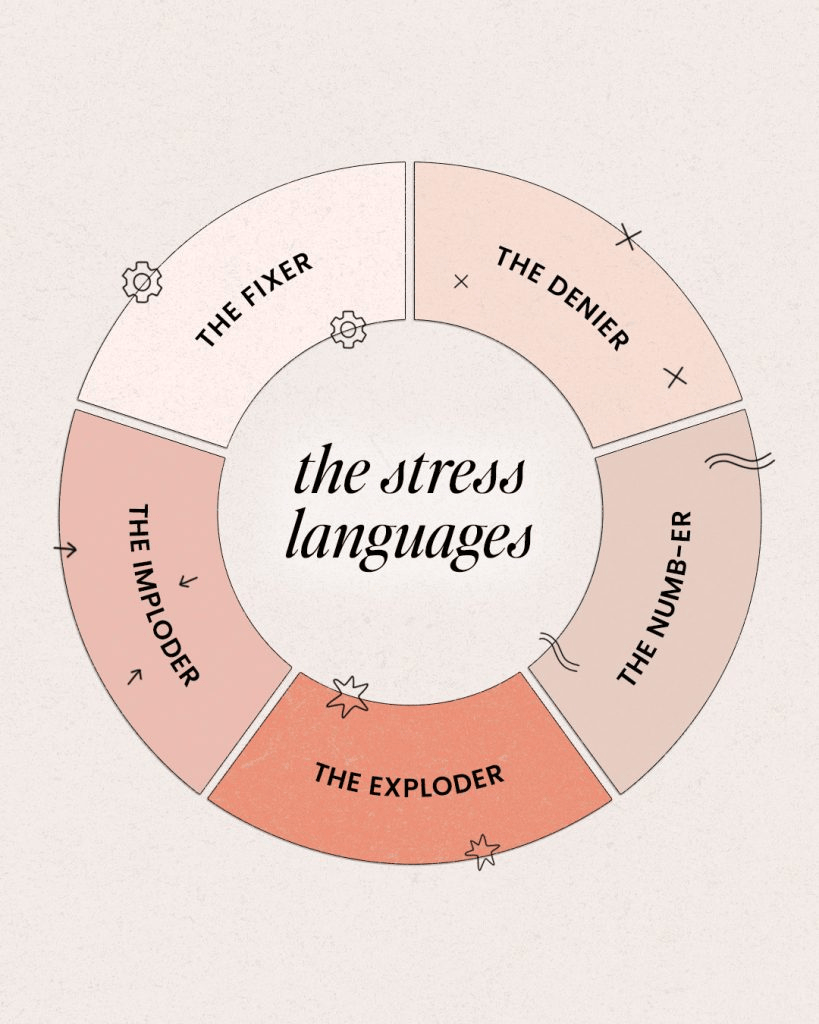We all know about love languages—the unique ways individuals give and receive love. But have you ever considered how stress affects your relationships? Understanding your stress language can significantly improve communication and emotional connection with your partner. Just as love languages can clarify our needs, stress languages can reveal how we cope during tough times.
Imagine this: you come home after a long day, and instead of a warm greeting, you find your partner distracted and distant. What’s going on? They might be exhibiting their stress language. Recognizing these reactions can help you navigate challenging moments more effectively.
What Are Stress Languages?
Coined by wellness expert Chantal Donnelly, stress languages describe how we express and react to stress. They serve as vital indicators of our emotional states and can significantly impact our relationships. Understanding these languages can lead to greater empathy and connection.

The Five Stress Languages Explained
- The Fixer: This person jumps into action, often trying to solve problems that may not require fixing. While their intentions are good, their actions can sometimes come off as overbearing. Picture someone insisting on rearranging your workspace to alleviate stress when you simply need a listening ear.
- The Denier: Deniers choose to suppress their feelings, often masking their stress with toxic positivity. They may insist that everything is fine even when it’s not. This can create a false sense of security, but neglecting emotional needs can lead to bigger issues down the line.
- The Numb-er: Numb-ers distract themselves to escape stress. They might binge-watch shows, scroll through social media, or overindulge in other distractions. While this can provide temporary relief, it often avoids addressing the underlying stressors.
- The Exploder: Exploders exhibit a fight-or-flight response, often becoming aggressive or blaming others for their stress. If a conversation turns heated, an exploder might lash out, creating conflict rather than resolution.
- The Imploder: In contrast to exploders, imploders internalize their stress, leading to self-criticism and shame. They may engage in negative self-talk, believing they are to blame for their feelings, which can hinder their emotional growth.
Benefits of Identifying Stress Languages
Understanding your partner’s stress language can enhance empathy and connection. It helps you navigate stressful moments with greater awareness, allowing you to respond instead of react. When your partner is distant or irritable, recognizing their stress language can guide you in providing the support they need, whether it’s space or a chance to vent.
It’s crucial to understand that recognizing these stress languages doesn’t excuse harmful behavior. Rather, it helps foster communication and accountability, encouraging both partners to address their needs constructively.
How to Identify Stress Languages
Identifying your stress language—and your partner’s—doesn’t require a degree. Begin by observing how you and your partner respond during stressful times. Do you distract yourself or lash out? Discussing your coping mechanisms openly can reveal patterns and lead to mutual understanding.
Consider sitting down together to discuss each other’s stress languages. This isn’t about labeling; it’s about gaining insight. You might find that certain situations bring out different stress responses. Acknowledge these differences, and approach them as opportunities for growth.
Navigating Different Stress Languages
If you and your partner have different stress languages, don’t worry—it’s entirely possible to maintain a healthy relationship. For instance, if you’re an imploder and your partner is an exploder, understanding each other’s responses can help you approach conflicts with compassion.
Communication is key. Share your experiences and feelings during stressful times. Discuss what each of you needs—whether it’s time alone, emotional support, or simply an understanding ear. Recognizing and respecting these needs will foster healthier interactions.
Embracing Stress Languages for Growth
In the end, understanding stress languages is about more than just managing conflict; it’s about nurturing your relationship. By actively engaging with each other’s stress responses, you can cultivate a more supportive environment.
Remember, every relationship faces challenges. By embracing these stress languages, you equip yourself with the tools to navigate life’s ups and downs together.
Let’s make it a point to explore our stress languages and support each other on this journey. Your relationship deserves it.








